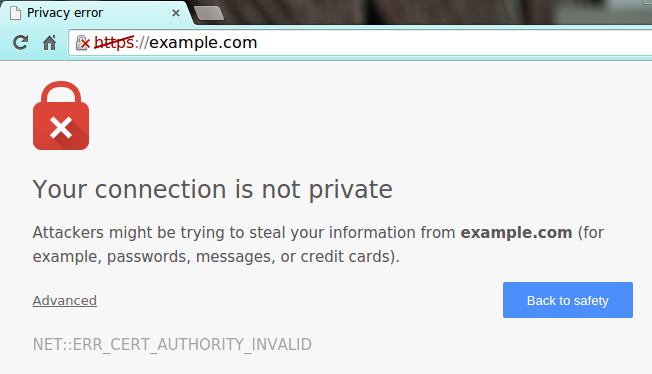For the commercial use third-party CA (Certificate Authority) Signed SSL Certificates are more trusted than Self-Signed Certificates.
Online shoppers are more aware of their data security and trust only on HTTPS secure website to shopping online. According to research, around 70 percentage online shoppers did not trust on the non-secure website and discard the online transactions and 64 percentage shoppers accepted that abandonment rate can be reduced by displaying secure site seal. So, it is most important that your website is secured with SSL certificate.
Once you decided to get SSL certificate for your website, you have two choices as below.
- Self-Signed Certificate (Ideal for testing environment only)
- Commercial CA-Signed Certificate (Most trusted and authenticated)
Many website owners go for Self-Signed certificate while others do the favor of third-party CA signed SSL certificate. In this article, we give detail explanation that clearly state, why you should pay for a CA-signed certificate. Before digging further, let us know about Self-Signed and third party certificate.
What is Self-Signed certificate?
A self-signed certificate is a public key certificate that is signed and validated by the same person. It means that the certificate is signed with its own private key and is not relevant to the organization or person identity that does sign process. Such certificate is ideally for testing servers.
What is CA-signed certificate?
A reputable third-party certificate authority (CA) issues a certificate that requires verification of domain ownership, legal business documents, and other essential technical perspectives. To establish certificate chain, certificate authority also itself issues a certificate that is named trusted root certificate. There are many CAs in SSL industry: GeoTrust, RapidSSL, Digicert, Comodo, GlobalSign, Thawte etc.
Risk involved in Self-Signed certificate:
When we discuss on differences between the Self-Signed certificates and trusted CA-signed certificates, please consider below drawbacks of a Self-Signed certificate.
- Browser Warnings: When it is a question of online payment, e-commerce, finance, banking or payment related website generally consider customers security in mind. Because browser authorities do not trust Self-Signed certificate, shows untrusted connection warning while connecting to HTTPS website.While most browsers hence recognize Root certificates of CAs, there is no issue may arise while establishing a secure connection between the browser and the web server. Thus, Self-Signed certificate is not the right choice for online businesses. CAs ensure that their private and root keys are kept safe.
- Revoked certificate: It is difficult to revoke Self-Signed certificate in the unmanaged situation as there may be the potential security breach at both encryption and decryption. Beside this, If CAs find compromised certificate that they have full power to revoked certificate anytime to prevent further damage from unauthorized access.
- Warranty: Third-party CAs offer warrant against certain losses in the case of certificate mis-issuance, which depends on purchased SSL certificate product and range can between the $10,000 to $1,750,000 USD. While Self-Signed certificate does not endow with warranty protection.
- Ignorance of Warning: In the long run, internal employees may ignore security warnings and add a untrusted certificate to the browser that can compromise internal organization’s network.
- Customers Trust: Customers do not trust those websites that show the warning in the browser during visiting it. As a result, organizations can lose customer trust and revenue in the long run.
- Authentication Issue: Self-signed certificate does lack of authenticity hence, attackers can replace the self-signed certificate with attacker’s own certificate. However, browsers will have no idea whether it is communicating with the right SSL certificate or a replaced certificate.
The above risks associated with a Self-Signed certificate can result in the huge cost to a company. If you go with the third-party CA, you can enjoy robust security along with integrity and authenticity. It is sensible to choose the third-party CA certificate rather take unwanted risks on your shoulder. SSL2BUY offers legitimate SSL certificate that avoids the unnecessarily high cost and provides the same SSL security at the reasonable price, ideally for any SMBs infrastructure.

